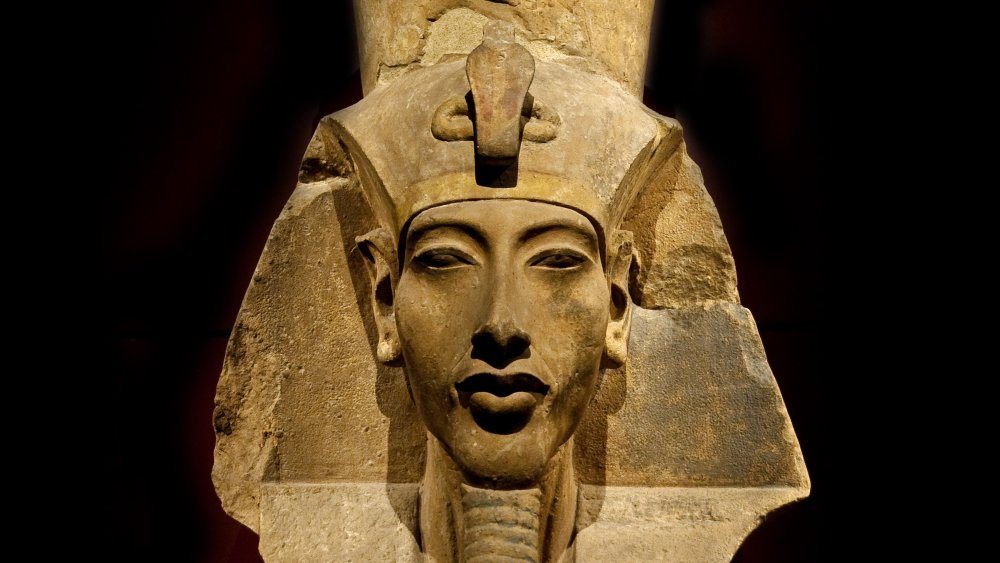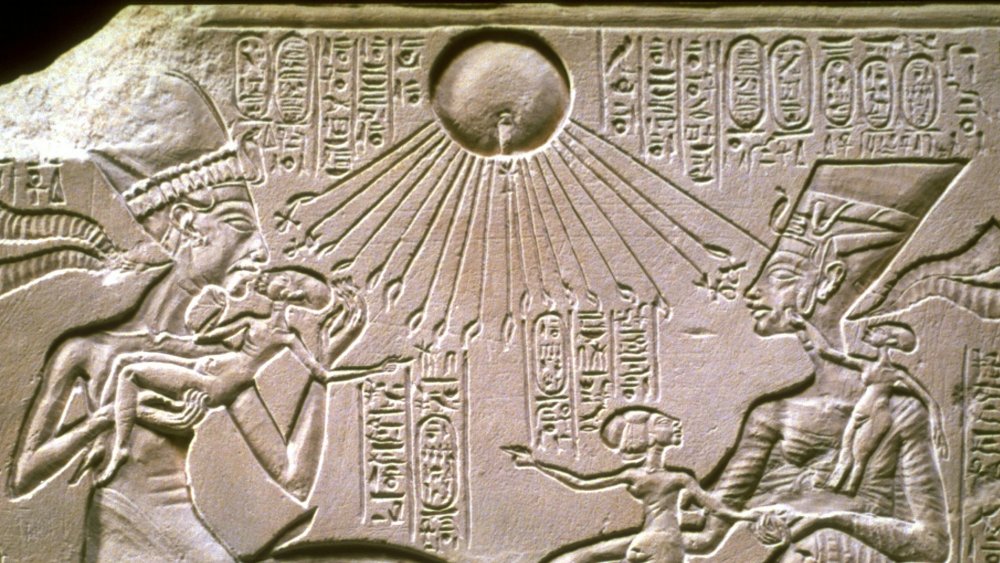This Might Have Been The Cruelest Egyptian Pharaoh
The thing about ancient Egypt? If you're trying to figure out who the meanest ruler was, there's a lot of stiff competition. According to A History of Sinai, Actisanes, an Ethiopian king who conquered Egypt for a spell, decreed that all criminals would have their noses cut off, then be sent to the city of Rhinocolura (literally "nose-cut-off") where they would drink dirty water and subsist on trash and quail ... and he was considered one of the ancient Egypt's most benevolent rulers. Good luck surviving those days.
The specific evidence regarding Actisanes' existence, like so much of Egyptian culture, is a matter of debate, thanks to five thousand years of history being stuck under nature's sand blaster. Knowledge about one of the oldest and most iconic civilizations on the planet — a group of people that moved two and a half ton rocks across miles of desert in order to build the pyramids and carve their legacy into the firmament of the Earth itself — is sort of a guessing game these days. Legend leaks into truth. Pictures and writings are assigned meanings that nobody can be sure about. Experts still don't know how to play their favorite board game.
One thing that is known, however, is that the pharaoh Akhenaten, also called Amenhotep IV, tenth ruler of the Eighteenth Dynasty, was a real pisser of a boss.
More like un-pharaoh
Akhenaten was a guy with a lot on his mind. He wanted to reorganize all of Egyptian religion, according to Encyclopedia Britannica, dropping the gods and focusing in on the worship of the sun disc Aten (or Aton), which didn't win many friends in the priesthood. In a monarchic equivalent to redecorating the whole house after getting a new couch, the pharaoh ditched the kingdom's capital city of Thebes, according to the Ancient History Encyclopedia, and ordered construction of a new one: Amarna, on the East bank of the Nile River.
Time was of the essence, and Amarna was to be built on the quick, whatever the consequences ... and there were definitely consequences. In 2008, the BBC reported on an archaeological expedition to the city which revealed the bodies of the city's workers. The findings were pretty gross. Professor Barry Kemp, lead excavator on the project, described two-thirds of the community dying before they turned twenty. Low-quality food provided to the workers left them malnourished. Around 60% had broken bones, including broken spines in around a third of them.
After he died, Akhenaten's new policies were promptly reversed, and his city was abandoned. The pharaoh's son, eager to distance himself from his old man's reputation, changed his name in an attempt to rebrand. What did he changed it to? Tutankhamun, actually. You know him as King Tut. Boom! Twist origin story.
... again, maybe. History is more art than science.

